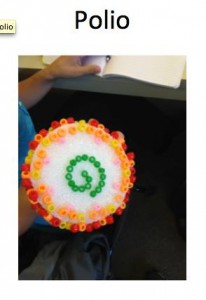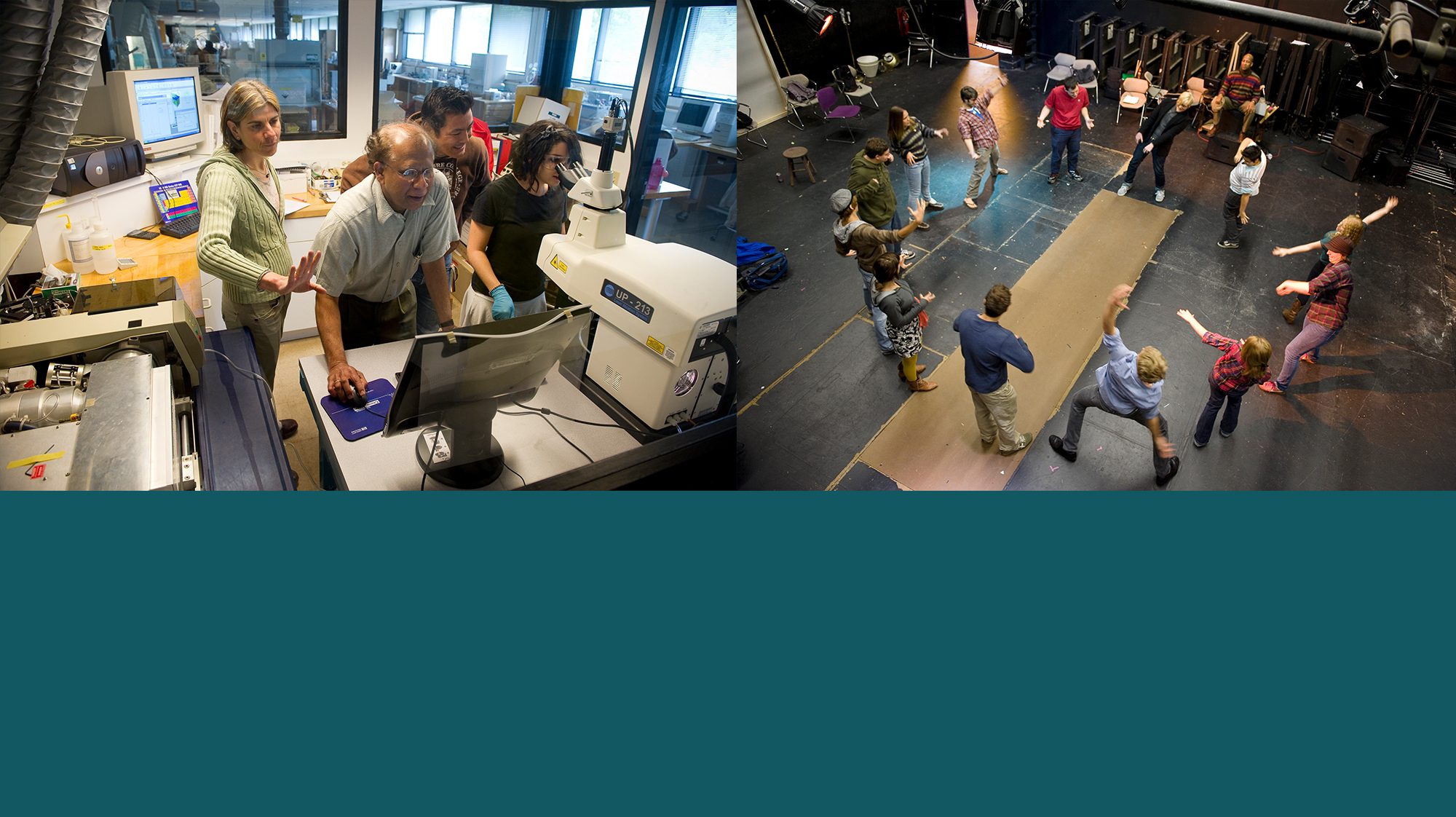 In Megan Dobro’s Virology class, students chose a “pet virus” that they will study in depth for the semester. The first assignment was to create a physical model of their virus. She has no artistic requirements; it just needs to be accurate. Megan gave ideas such as using clay, paper mache, found objects, or origami using online guides. Students presented their models to the class and showed how they represented the virus’s symmetry, structural components, and maybe dynamic processes. More important than the product, the process of creating a seemingly silly model got students to think more deeply. Looking only at two-dimensional pictures of viruses, students may not have realized that the viral shell has a complex, beautiful symmetry. Or that there are specific ways each viral component fits together, and that tells you something about which pieces rely on each other. Or that viruses are relatively simple particles and it’s amazing they wreak so much havoc on the world. Students might spend 15 seconds looking at a picture, but in the process of making a virus, they take time with their virus, studying all of the shapes and possible ways it can be built and taken apart. They start to ask questions that introduce advanced concepts. See the results of this year’s class models.
In Megan Dobro’s Virology class, students chose a “pet virus” that they will study in depth for the semester. The first assignment was to create a physical model of their virus. She has no artistic requirements; it just needs to be accurate. Megan gave ideas such as using clay, paper mache, found objects, or origami using online guides. Students presented their models to the class and showed how they represented the virus’s symmetry, structural components, and maybe dynamic processes. More important than the product, the process of creating a seemingly silly model got students to think more deeply. Looking only at two-dimensional pictures of viruses, students may not have realized that the viral shell has a complex, beautiful symmetry. Or that there are specific ways each viral component fits together, and that tells you something about which pieces rely on each other. Or that viruses are relatively simple particles and it’s amazing they wreak so much havoc on the world. Students might spend 15 seconds looking at a picture, but in the process of making a virus, they take time with their virus, studying all of the shapes and possible ways it can be built and taken apart. They start to ask questions that introduce advanced concepts. See the results of this year’s class models.
Blended Learning Resources and Conference
Interested in Blended Learning?
Visit the Bryn Mawr Blended Learning Initiative Blog. If you’d like to be kept up to date on the Bryn Mawr project developments and opportunities, please add your name to their mailing list.
OR: Attend the the fourth annual conference on Blended Learning in the Liberal Arts on May 20-21, 2015 at Bryn Mawr. The focus of the conference will be on using blended learning to improve student learning outcomes and support the missions and cultures of liberal arts colleges. Come share ideas and information about findings, experiences, and best practices with LAC faculty and staff, and get some hands on experience with materials and technologies.
Contact Laura Wenk (lwenk@hampshire.edu) to see if the CTL can help support your attendance.

